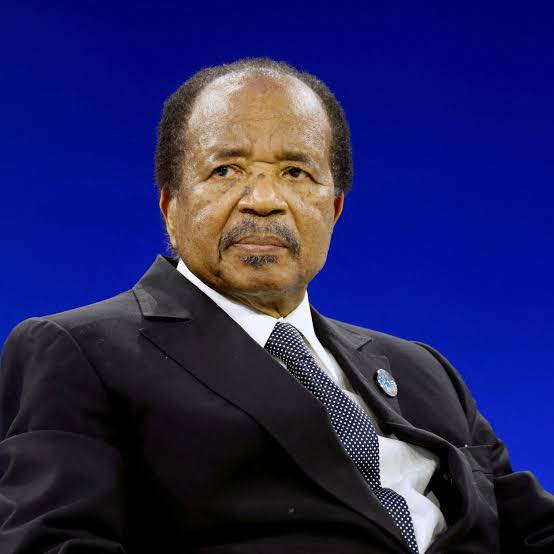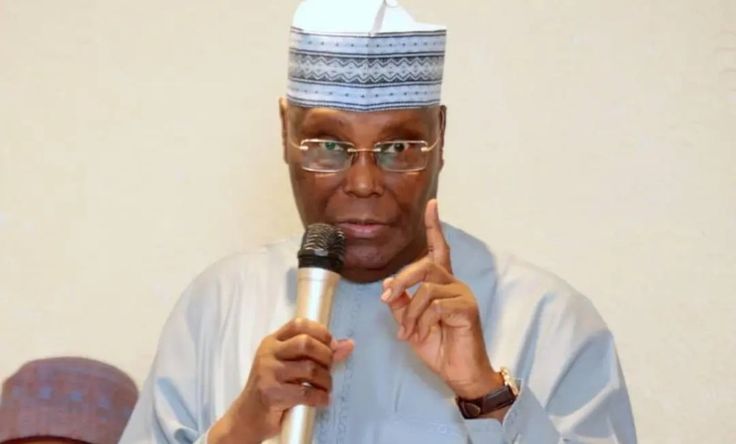Published by Cyril — October 12, 2025
Cameroon’s 92-year-old President Paul Biya, the world’s oldest serving head of state, is expected to extend his 43-year rule as millions of citizens head to the polls in a tense presidential election.
Voting commenced early Sunday across the Central African nation, where over eight million registered voters are participating in a one-round poll that many believe is unlikely to unseat Biya, who has ruled since 1982.
Despite facing 11 challengers, Biya remains the overwhelming favourite, having won every election in the past two decades with more than 70 percent of the vote.
Among his opponents is Issa Tchiroma Bakary, a 79-year-old former employment minister whose campaign has gained unexpected momentum, particularly among younger voters in a country where half the population is under 20.
Polling stations opened at 8 a.m. and will close by 6 p.m. local time.
- “We shouldn’t be naive. The ruling system has the means to influence results in its favour,” said political analyst Stephane Akoa, though he noted that this year’s campaign was “livelier” than previous elections and could still spring surprises.
Biya made a rare public appearance on Tuesday — his first since May — holding a rally in Maroua, a key northern city with 1.2 million voters. Once a Biya stronghold, the region now hosts several of his former allies who are running against him.
Youth Push for Change
The opposition’s 11 candidates have promised a “new dawn” for Cameroon, hoping to appeal to the frustrations of a generation that has known only one ruler.
Biya’s top challenger, Bakary, drew large crowds in his home region this week, contrasting sharply with the President’s smaller rally turnout. His supporters hailed him as “Tchiroma the Saviour.”
Bakary’s popularity surged after leading opposition figure Maurice Kamto was disqualified from the race by the Constitutional Council — a move criticised by Human Rights Watch as damaging to the election’s credibility.
Economic Struggles and Voter Apathy
Cameroon, which gained independence from France in 1960, remains Central Africa’s most diversified economy, rich in natural and agricultural resources. Yet, about 40 percent of its people live below the poverty line, and urban unemployment hovers around 35 percent, according to 2024 World Bank data.
Many young Cameroonians have expressed discontent over the rising cost of living, poor access to clean water, education, and healthcare. Still, analysts say their frustrations largely play out online rather than on the streets.
- “There’s a sign of change, but perhaps not strong enough to bring young people out to protest, as seen in Tunisia or Madagascar,” Akoa added.
Election Oversight and Tensions
More than 55,000 local and international observers, including representatives from the African Union, are monitoring the polls. The Constitutional Council is expected to announce the official results by October 26.
HEED: Follow us on Instagram or any other social media platform and get the most reliable news directly in your favourite app!
Meanwhile, the government has condemned several online platforms planning to publish independent vote tallies, accusing them of attempting to “manipulate public opinion.”
The election is also being held amid ongoing conflict in Cameroon’s English-speaking regions, where separatist unrest has disrupted life since 2016. Voter turnout in those areas remains low, echoing the situation in the 2018 elections.
As the nation awaits results, many Cameroonians are watching to see whether Biya’s decades-long dominance will continue — or if, after 43 years, the winds of change will finally sweep through Yaoundé.
NaijaBlogDaily# is visible on all social media platforms, bringing you the latest Nigerian news on politics, economy, entertainment, and celebrity updates. Including sports across Nigeria and beyond…
Keep visiting and following up with us on any social media platform you are using to keep you updated 💯
Remember (information brings knowledge and power).
STAY TUNED!!!



